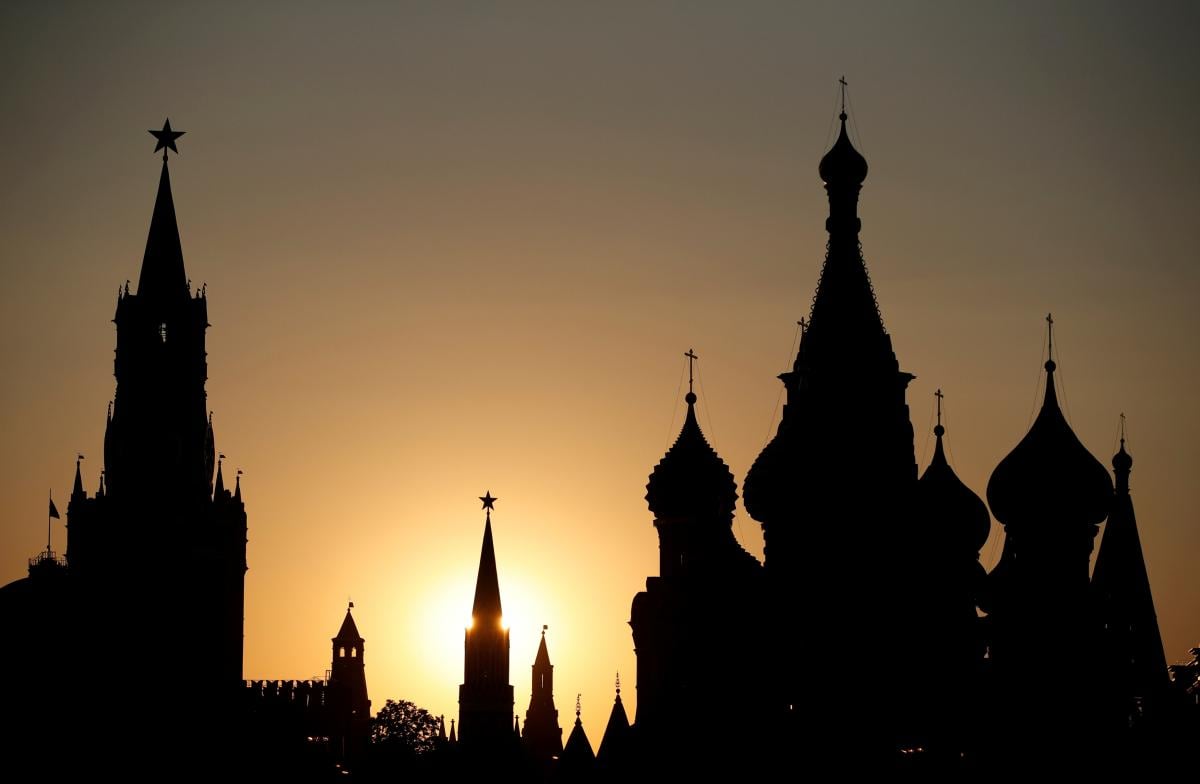
For weeks now, official Russian government news outlets have been proudly trumpeting the news of an astronomically low rate of coronavirus cases and fatalities in Russia compared with the rest of the world, emphasizing stats in the U.S. and EU.
Amid such a "low" rate, Russia now boasts of even being able to dispatch experts and medical supplies to the West amid the ongoing fight against the pandemic, IGDTS think tank reports.
The move is obviously aimed to claim that Russia must have both a superior culture and health care system designed to cope with a crisis like this international pandemic.
Or maybe not.
In reality, the Russian health care system is a disaster. Hospitals are decaying, staff salaries are dismal and modern, while functional medical equipment is in desperately short supply.
Read alsoKremlin not planning to postpone Victory Parade in Moscow despite COVID-19 spread (Video)
Besides, no average Russian usually goes to a doctor unless they are either in unbearable pain or seriously ill to the point of almost dying. Otherwise, they opt to deal with health issues themselves, IGDTS notes.
So, if the average Russian rarely, if ever, goes to a doctor, especially for something as relatively minor as a low-grade fever, sore throat or runny nose (classic viral symptoms), how are they being tested for the coronavirus? Chances are they aren't. Even if someone wanted to get tested for the coronavirus or anything else, there aren't nearly enough healthcare facilities to serve them.
According to a report by the Russian State Statistical Service published by Borgen Magazine in 2018 on the declining public healthcare system, "In rural areas, 17,500 towns and villages have no medical infrastructure whatsoever. According to the State Statistics Service, the number of health facilities in rural areas fell 75 percent between 2005 and 2013. This number includes a 95 percent drop in the number of district hospitals, and a 65 percent drop in the number of local health clinics."
Although this number has improved somewhat recently, the number of doctors leaving the medical profession over low wages has actually increased, leaving Russians with even less options for treatment.
Read alsoPsy-ops and disinformation campaign in Italy amid crisis
"This brings us to the question of the dramatically low numbers of Russian people who have been infected by the COVID-19 virus," IGTDS wrote. "As of late on April 1, 2020, the official Russian government numbers stood at 2,237 confirmed cases of the disease and 23 deaths."
That same day Russian President Vladimir Putin was quoted as saying, "the situation in our country looks a lot better" than Europe and was "under control." However, just prior to Putin's statement, Moscow Mayor Sergei Sobyanin stated the obvious fact that Putin could apparently not bring himself to admit publicly: "The testing volume is very low, and nobody knows the real picture."
"The fact is that no one, especially the Russian government, knows the true extent of COVID-19 infections or deaths within Russia because the overwhelming majority of Russian citizens rarely, if ever, visit a doctor," the think tank wrote.
Therefore, the overwhelming majority of Russian citizens have not been tested for the coronavirus. Also, Russians do not exactly believe in obeying rules, especially when they might pose an inconvenience to their lifestyle, so social distancing and other suggested safety measures are probably being ignored by a large percentage of the population.
With the dormant phase of COVID-19 now known to be up to 2-3 weeks, and with millions of Russians returning home from work, school and vacations abroad, it is only a matter of time before the number of Russian citizens infected with COVID-19 increases exponentially.
Read alsoU.S. debunks Russia's "humanitarian aid" claims, says medical supplies fully paid for
Unfortunately for Russia and the rest of the world, because of the culture within Russia of both noncompliance to rules and their avoidance of doctors, it may be a very long time, if ever, before the world learns the true extent of the unfolding healthcare crisis in Russia caused by COVID-19.
"Certainly, it is not in the best interest of Vladimir Putin and the Kremlin to tell us the truth anytime soon. By that time, Russia and the rest of the world may be a very different place," the report concludes.

